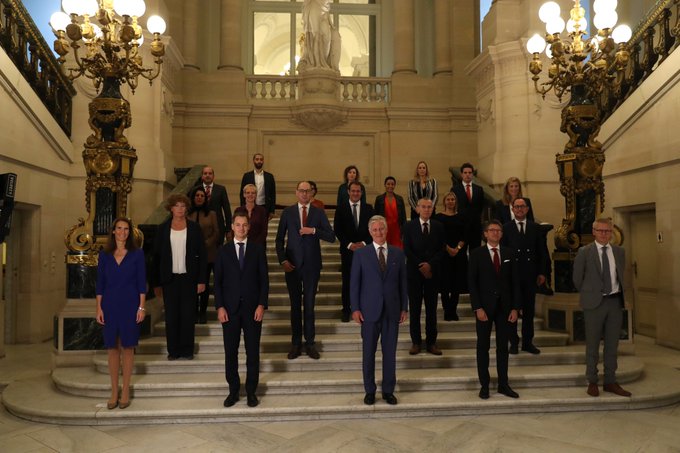The new government led by Alexander De Croo has a background ministerial staff of 838 people, 69 more than the Charles Michel government had at the start of its term of office, VRT News has revealed.
However circumstances have changed since that new administration took office in October 2014, and as a result, the number of staff per ministry is actually lower now than then.
The Michel government consisted of four parties at the outset: MR, CD&V, Open VLD and N-VA. Under the French-influenced Belgian system, each party has one vice-premier, who has two cabinets, one for general governmental affairs, and one for whatever ministerial brief they hold.
In addition, that government had nine ministers and five secretaries of state, or junior ministers.
In total, the Michel government therefore had 23 cabinets to staff, including the prime minister’s own.
The De Croo government, on the other hand, consists of seven parties, which means seven vice-premiers with 14 cabinets.
On top of that there are seven ministers and five secretaries of state, for a total of 26 cabinets.
The result is that the present government has an average of 41.9 staff, compared to 42.7 back in 2014. And the current figure of 838 could have been much higher.
“That is a reduction of 71 employees compared to the proposal that was on the table based on the applicable rules, about 8% less,” one member of De Croo’s staff told the VRT.
Political scientist Pieter Moens from Ghent university put the ministerial staff under a microscope and determined the following characteristics.
• Men are in the majority (58%), particularly at higher levels including special advisors (64%) and top managers (62%). Communications staff are roughly equal (51%-49% men-women), while a majority of administrative and support staff are women (56%).
• Staff are mainly in their thirties and forties, with the exception of top managers, more than half of whom are over 50.
• Appointments are often informal: 40% are engaged directly, and 40% applied for the job. Only 20% pass through any formal employment procedure.
• Linked to the above, only one in five is not a member of a political party, and more than half come from the minister’s own party. About one in three has more than 10 years experience in a cabinet, a parliamentary fraction or a party executive.
The cost of the new government is impossible to determine at this stage, but the smaller Michel government cost €86.78 million in the single year of 2018. On the basis of a five-year term, that would come to €434 million.
The other layers of government in the Belgian federal system brought the total for one year to €197.64, or almost one billion euros for a full term.

